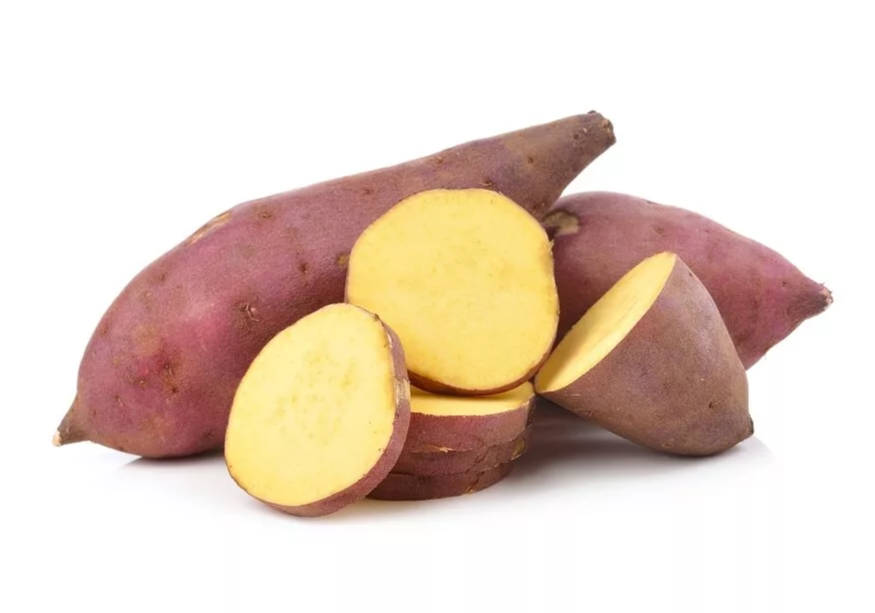You might have heard that
oxalates
can cause all sorts of health issues, like kidney stones and gallstones, leading
some to avoid high-oxalate foods like fruits, vegetables, leafy greens, and
potatoes—foods that are naturally packed with nutrients and healing properties.
But there’s a lot of misunderstanding around this topic. Let’s break it down and
set the record straight!
What Are Oxalates, Really?
Oxalates are organic acids found in many foods, including fruits,
vegetables, leafy greens, herbs, and even some animal products. Your body
also produces oxalates naturally as part of its metabolism, primarily from
Vitamin C, glycine, and other compounds. Once your body produces oxalates,
it eliminates them through the urine.
Interestingly, while
calcium oxalate is the most common component of kidney stones, studies show
that a strict low-oxalate diet isn't the go-to strategy to prevent kidney
stones. It’s not about avoiding oxalates entirely—it’s about balance and
understanding how your body processes them.
Why Is It So Complicated?
The relationship between the oxalates we eat and kidney stone formation is not as straightforward as it may seem. In other words, eating high-oxalate foods doesn't always mean you’ll have higher levels of oxalate in your urine. In fact, some high-oxalate foods like green tea have even been shown to protect against kidney stones due to their antioxidative properties!
Here’s where your gut health comes in: Your digestive system is home to certain bacteria, like Oxalobacter formigenes, that help break down oxalates from the foods you eat. These bacteria reduce how much oxalate your body absorbs. So, maintaining a healthy gut microbiome is key to regulating oxalate levels and minimizing the risk of kidney stones -- and ironically, a lot of foods high in oxalates are very helpful for maintaining a healthy gut microbiome!
The Role of Sally K. Norton’s Argument
Sally K. Norton, in her book
Toxic Superfoods, claims that oxalates can cause a range of health issues, from kidney stones to joint pain, and recommends sticking to a low-oxalate diet. However, there is a lack of credible scientific evidence to support her wide-reaching allegations. While oxalates can cause problems for some people with specific health conditions, most of us do not need to fear these naturally occurring compounds in our food. And the vast majority of the time, oxalates are not the root cause of the health issue(s) at hand.
It’s essential to differentiate between legitimate medical conditions, such as hyperoxaluria (where too much oxalate is produced in the body) and oxalosis (when oxalate crystals build up in tissues), and the more common advice to simply “avoid oxalates” without any context. For the average person, oxalates are not a major health threat when consumed in a balanced diet.

Who Might Need to Be Cautious?
There are specific cases where oxalates might be problematic. Individuals with chronic gut issues like Crohn’s disease, inflammatory bowel disease, or those who've had bariatric surgery may absorb more oxalates than most people, which can lead to health concerns (only potentially, and temporarily, while the root cause of these issues is addressed!).
|
|
|
Tips for Enjoying Oxalates Without Worry
-
Eat a Balanced Diet: Make sure you're consuming plenty of
calcium and potassium-rich foods. Calcium
binds to oxalates in the gut and reduces
absorption, lowering the chances of oxalates
entering your bloodstream and forming
crystals.
-
You Can Try Cooking Your Oxalate-Rich
Foods: Boiling and steaming high-oxalate foods,
like spinach and potatoes, can reduce their
oxalate content by up to 90%. Simple
preparation methods like peeling or boiling
can make a big difference.
-
Pair With Calcium: As mentioned, calcium is the most potent
modifier of oxalate absorption. So, pair your
high-oxalate foods (like spinach or sweet
potatoes) with calcium-rich foods, such as
broccoli, dairy, or fortified plant milks.
-
Stay Hydrated: High quality water is your friend! Staying
hydrated dilutes oxalate in your urine and
reduces the risk of kidney stone formation.
Drink plenty of fluids throughout the day to
keep things flowing smoothly. 🍶💧
-
Boost Gut Health: A healthy gut microbiome can significantly
reduce the risk of oxalate-related
issues.
|
|

|
|

|
|

|
|

|
Bottom Line: Don't Fear Oxalates
Unless you have a specific condition
like hyperoxaluria or a severe gut issue, oxalates are nothing
to fear. They are found in many nutrient-rich foods that contribute to overall health, and with
proper preparation, they shouldn’t pose a problem.
Your body knows how to process oxalates, and if
you support it with a balanced diet and healthy
gut, you'll be just fine.
If you have concerns, especially regarding
kidney stones, it’s always best to consult with
a healthcare provider to determine the best
approach for your individual needs.
|
|
|




.png)

.png)



.png)


One “internet doc” states almond milk is too high in oxalates and should be avoided altogether. Is there any truth to that, or is it just fear mongering? Thanks in advance!
ReplyDelete